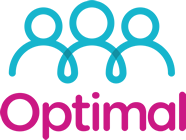We really did hear it all last year.
From headlines suggesting “More people than EVER moving jobs!” to others telling us “Vacancies grow as employees stand firm!” it’s difficult to know what to believe.
So, what is happening in the recruitment world this 2022? Are we seeing mass people movement across sectors? Or are workers staying glued to the spot in case the pandemic takes hold again (perhaps for other reasons – dare we suggest they might actually enjoy what they do)?
Today, we’re taking a closer look at what is really happening in job land!
The Facts
They’re calling it the Great Resignation. It’s true, 2021 saw large numbers quitting their jobs – a record-breaking 4.5million people by November, according to a Guardian report. But what do the figures actually tell us about the employment situation and can we expect the same this year? And if people are moving on mass, why?
In an ongoing time of uncertainty, people look for stability wherever possible. While many might assume this is reason enough to stay in their current role, it all depends on that role. If you’re a full-time corporate worker expected at a desk between business core hours, juggling work and school closure-driven childcare, then perhaps it’s no wonder you fancy a sea change to a role more flexible. And that’s before we consider the millions of workers in retail, hospitality and leisure whose sectors were the worst hit during the pandemic – sure enough, we can forgive these folks for wanting to escape the sinking ship.
When you appreciate WHO is moving, it starts to make sense.
Check the data, and it certainly appears that resignations have skyrocketed in hospitality, leisure, and retail. We already know that businesses in these sectors struggled to survive pressure caused by the pandemic, with many going bust in 2020 and others left on tenterhooks after more lockdowns in 2021. Surely, where workers are sensing the writing on the wall, they help protect themselves by moving on before being forced to do so. Indeed, some will doubtless have grown so tired of the ‘on and off’ switch since March 2020 – working one minute and locked down the next – perhaps it was finally time to seek a new horizon beyond their sector.
Then, of course, there is healthcare. A sector with a workforce completely exhausted – or worse, unable to attend work thanks to testing positive frequently and isolating. Surely, even the hardiest and dedicated of workers must be thinking they’ve had enough. The figures would certainly agree. Although the dip last year does seem to be closing somewhat.
Resignations, yes. But not out of work.
One thing that’s hard to escape, pandemic or otherwise, and that’s the monthly bills. Unless you’ve a stash of cash somewhere – which isn’t that many of us – employment remains critical, and resigning from your job is seldom to sit and do nothing.
So, where are our masses of resigned types headed to? Suppose you’ve just left a struggling sector. In that case, it’s likely you’ve gone somewhere entirely new – unless you’ve found yourself a competitor willing to pay you slightly more (and even so, it still leaves you in a position somewhat precarious).
Just as some sectors have dipped, others have grown and given rise to new roles to fill for those out of work. Manufacturing and logistics are taking on more staff than ever to support the growth in online retail. IT services companies continue to expand, needing more staff to fulfil roles both technical and administrative – and while the former warrants specific skills, the latter requires less formal training, something ex-hospitality workers with customer service experience might suit.
Then there are those looking for something altogether different called ‘self-employment’. Because, as we have seen throughout the pandemic, some businesses forced into change have seen better results than beforehand, encouraging some PAYE workers to walk away from so-called stability towards entrepreneurial life. And why not? If it’s flexibility you’re wanting, you’ll certainly have it on tap by running your own show!
What can HR do to reduce movement?
If you’re tasked with keeping your workforce content, talk of mass resignation will worry you. As most HR professionals know, retention is key to stability and keeping recruitment costs down. Losing one staff member may well cause a ripple effect, with more following suit putting incredible pressure on those remaining and causing headaches for hiring managers too.
Nowadays, a wage alone is not enough to keep people happy in a job. Sure, financial stability matters, but other factors are creeping up the list of employee must-haves. If you’re going to retain your staff this year (and beyond), then you need to build a strategy to accommodate those needs – including the following fundamentals:
Flexibility
No doubt about it, flexible working is having a field day. Finally! While some corporate companies cottoned onto it years ago, it has become more prominent thanks to Covid and rules around social distancing. But it goes beyond corporate into all sectors, and if you want to impress your workforce, flexible working is key. Adapting quickly to the pandemic – not to mention the sacrifices made – says we can and will remain productive even when working flexibly, and you’ll get more out of your workforce by meeting them half-way.
Training
Your staff deserve to feel valued and it starts with their development.
It might well have dropped off the radar because of the pandemic, but ongoing training is essential from new starts to seasoned veterans. Assess your entire team for skills relevant to their role; if any are lacking, arrange training to bridge the gap. Make sure you have a visible, long-term training strategy that covers each role company-wide so your teams know what to expect and when. By demonstrating your commitment to their development, you are more likely to receive their commitment in return.
Wellbeing
It’s time to face it; your people are tired – in some cases, exhausted. Covid has caused fatigue across the nation to a degree we’re only really appreciating now, and employers have to take this seriously if they want to optimise workplace wellbeing.
We mean more than a massage on the company (however well your staff might receive this!). Wellbeing needs to become a part of who you are through a wellness strategy. This can include drop-in sessions covering mindfulness techniques, work-based fitness classes or support towards gym membership, and designated times for breaks. Also, swap unhealthy snacks for fresh fruit bowls and make sure water stations are plentiful.
Assign a leader as your wellbeing officer to ensure team members stay well.
Benefits to your staff are ten-fold – and for your company, it’s a happier, healthier productive workforce, day in and day out. Care for your individuals, and they’re less likely to leave!
In need of some HR advice? Wherever you are in the UK, you can arrange a chat with one of our friendly professional HR advisors at any time.
Call us on 0330 0881857 or email enquiries@optimal-hr.co.uk
We’re also on Facebook, Twitter, Instagram and Linked In!









